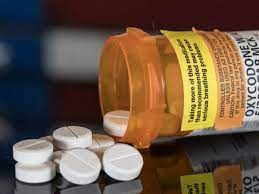Percocet Abuse Symptoms & Withdrawal
Immediate
Placement Available at our Top-Rated Treatment Centers.
Please call us at (855) 410-4488. We work
with most major insurance providers and offer flexible payment
options!
Atrium Addiction Care offers a variety of treatment choices and programs for individuals struggling with drug or alcohol addiction. Our inpatient treatment programs are designed for those who have more severe substance use problems and require 24-hour care. We admit both voluntary and involuntary patients.

Percocet, a combination of oxycodone and acetaminophen, is often prescribed as a pain medication. However, it is also abused for its euphoric effects which can lead to addiction.
Percocet abuse has become a significant public health concern in recent years due to its potential for addiction and overdose. Abuse of Percocet can result in various physical and psychological symptoms that are indicative of addiction drug abuse.
Withdrawal from the drug can be painful and uncomfortable, making it difficult for individuals addicted to Percocet to stop using without professional help. In this article, we will explore the symptoms of Percocet abuse and physical withdrawal symptoms along with treatment options available at Atrium Addiction Care.
Understanding these symptoms overdose effects and treatments is crucial for anyone struggling with Percocet addiction or seeking help for someone else who may need assistance.
What Is Percocet?
Percocet is a prescription painkiller that contains two active ingredients: oxycodone and acetaminophen.
Oxycodone is an opioid analgesic that works by binding to receptors in the brain and spinal cord, reducing the perception of pain. Acetaminophen is a non-opioid pain reliever that helps enhance the effects of oxycodone.
Percocet comes in different strengths and forms, including tablets and capsules. The effects of taking Percocet can vary from person to person depending on factors such as dosage, frequency of use, age, weight, and health status.
Common short-term effects include feelings of euphoria, relaxation, drowsiness, confusion, slowed breathing rate, constipation, nausea, and vomiting. Long-term use or misuse of Percocet can lead to physical dependence or addiction.
Other risks associated with Percocet use include respiratory depression (slowed breathing), overdose, liver damage due to acetaminophen toxicity if taken in large amounts or for prolonged periods. Despite its medical benefits when used appropriately under the supervision of a healthcare professional, Percocet has potential for abuse and addiction due to its high potency and ability to produce intense feelings of pleasure.
It is classified as a Schedule II controlled substance by the Drug Enforcement Administration (DEA) because it poses significant risk factors for abuse and dependence compared to other painkillers like ibuprofen or aspirin. Individuals who are prescribed Percocet should follow their doctor's instructions carefully and not share their medication with others.
Signs Of Percocet Abuse

Percocet is a powerful opioid pain medication that contains oxycodone and acetaminophen. It is prescribed to treat moderate to severe pain, but as other opioids, it also has a high potential for abuse, addiction, and overdose.
When someone abuses prescribed Percocet again, they may experience physical symptoms such as drowsiness, nausea, constipation, slowed breathing, pinpoint pupils, sweating, itching, or muscle weakness. They may also exhibit behavioral changes such as taking more pills than prescribed or running out of their prescription early; seeking multiple doctors or pharmacies to obtain more pills; neglecting responsibilities at work or home; withdrawing from social activities; stealing or borrowing money or pills from others; lying about their drug use habits; or engaging in risky behaviors while under the influence of drugs abusing percocet.
Moreover, the psychological symptoms and effects of Percocet abuse can include mood swings, anxiety attacks, depression symptoms, paranoia, hallucinations (seeing/hearing things that are not there), confusion/delirium (disorientation/loss of consciousness), memory loss (amnesia) or suicidal thoughts/actions.
Long term consequences of abusing opioids like Percocet may result in tolerance (needing higher doses to achieve the same effect); dependence (experiencing withdrawal symptoms when trying to quit using); addiction (compulsive drug-seeking behavior despite negative consequences); respiratory failure/coma/death due to overdose; hepatitis/HIV infections from injecting crushed/snorted pills with dirty needles; legal problems/arrest/incarceration/fines/felonies due to illegal possession/sale/use of controlled substances.
Early intervention is crucial for preventing further harm caused by Percocet abuse. Family members and friends should look for signs and symptoms of substance misuse among loved ones and encourage them to seek help from a healthcare professional, addiction specialist, or support group.
Treatment options for Percocet abuse may include detoxification (safely managing withdrawal symptoms), medication-assisted therapy (using drugs like buprenorphine/naloxone/methadone to reduce cravings and block the effects of opioids), behavioral therapy/counseling (addressing underlying issues that led to drug use and developing coping skills to prevent relapse), or self-help groups (such as Narcotics Anonymous).
Percocet Withdrawal Symptoms

Percocet withdrawal symptoms can be a challenging experience for those who have been abusing the drug. Individuals may feel overwhelmed as they struggle to cope with the physical symptoms and psychological impact of stopping their usage of opioid medication. The process is complex, and it requires patience and support from loved ones.
The timeline of symptoms varies depending on the individual's usage habits. Withdrawal typically begins within 12 hours after last use and peaks at around 72 hours. Symptoms of withdrawal can persist up to ten days or longer in severe cases. These symptoms include but are not limited to:
- Nausea
- Vomiting
- Diarrhea
- Muscle aches
- Anxiety
- Depression
- Insomnia
- Irritability
- Sweating
- Chills
- Hot flashes
- Fatigue
Treatment options are available for individuals experiencing Percoect withdrawals. Support groups such as Narcotics Anonymous (NA) offer emotional support through peer-to-peer discussions with others going through similar experiences. Coping strategies such as meditation exercises or breathing techniques help alleviate stress levels during this period social withdrawal.
Long-term negative effects because of Percocet abuse may lead to liver damage or addiction; thus seeking professional medical attention is highly recommended when deciding on treatment plans that will aid in long-term recovery goals.
Below are some coping strategies that can be used while tapering off Percocet:
- Mindful meditation
- Cognitive-behavioral therapy
- Physical exercise
- Nutritional counseling
- Art Therapy
In conclusion, following symptoms of undergoing Percocet withdrawal can be overwhelming for anyone dealing with substance abuse issues. It is critical to seek professional help if necessary because untreated percocet withdrawal symptoms could potentially become fatal without proper care. Treatment programs provide guidance towards healthy behaviors and lifestyle changes essential for long-term sobriety goals beyond just managing immediate withdrawal symptoms alone.
Treatment For Percocet Addiction
Having discussed the various symptoms of a Percocet overdose and withdrawal, it is essential to understand how individuals struggling with addiction can receive treatment for their condition. Treatment options for Percocet addiction usually involve a combination of therapies and support systems that are tailored to meet individual needs.
One of the critical decisions individuals must make when seeking treatment is whether to undergo outpatient or inpatient care. Inpatient programs offer more intensive therapy and round-the-clock medical supervision, making them suitable for those dealing with severe addictions. Outpatient programs, on the other hand, provide greater flexibility by allowing patients to continue living at home while receiving treatment.
Medication-assisted therapy (MAT) may be used as part of both inpatient and outpatient treatments for opioid use. MAT involves using medications such as methadone, buprenorphine, or naltrexone to help alleviate withdrawal symptoms and reduce cravings associated with opioid addiction. However, these medications should only be administered under the close supervision of licensed healthcare professionals.
Individual therapy and group therapy are also vital components of rehabilitating from Percocet abuse. Individual therapy provides one-on-one support from a therapist who can help identify triggers and develop coping mechanisms specific to an individual's unique situation. Group therapy offers peer support by connecting individuals going through similar experiences within a safe environment where they can share openly without judgment.
Aftercare support is equally important after completing formal treatment programs. Aftercare may include ongoing counseling sessions, participation in 12-step meetings like Narcotics Anonymous (NA), or sober living arrangements that provide accountability and structure during early recovery stages. With appropriate aftercare support services, people recovering from Percocet addiction have better chances of maintaining long-term sobriety.
Overall, there are numerous evidence-based approaches available for treating Percocet addiction successfully. The right approach depends on individual circumstances such as severity of addiction, family history, personal preferences, family history, and financial resources among others factors; however ultimately anyone suffering from opioid dependency has hope of recovery.
Atrium Addiction Care
Atrium Addiction Care offers a comprehensive addiction treatment that addresses the root cause of substance abuse, including Percocet abuse. The center provides evidence-based therapies and innovative programs to ensure patients receive individualized care tailored to their specific needs.
One of the primary components of the treatment program is addiction therapy which aims prior use and to help individuals understand and address the underlying psychological factors contributing to their drug use.
Recovery support is also an integral part of Atrium Addiction Care's approach to treating Percocet abuse. Recovery doesn't end once a patient completes rehab; rather, it's a lifelong process. To this end, the center offers aftercare services such as relapse prevention planning, peer support groups, and ongoing counseling sessions. These resources provide patients with continued guidance and support during their recovery journey.
In addition to one-on-one counseling, behavioral counseling and group therapy are two other critical elements of Atrium Addiction Care's treatment program for Percocet abuse. Behavioral counseling helps individuals identify negative patterns in their thinking and behavior related to substance abuse while developing healthy coping mechanisms. Group therapy allows patients to connect with others who have experienced similar struggles, providing them with both emotional support and practical advice on how to overcome challenges associated with addiction.
Through these modalities, Atrium Addiction Care helps individuals recover from Percocet abuse by addressing not only physical dependence but also mental health issues that contribute to addiction.
Helplines And Resources

Support groups and counseling sessions are crucial resources for individuals seeking addiction recovery. These services provide a safe space to share experiences, receive emotional support, and learn effective coping strategies. The ability to connect with others who have gone through similar struggles can be empowering and motivating, especially during difficult times.
In addition to support groups and counseling sessions, it is important for those struggling with percocet abuse to seek medical advice from professionals specializing in addiction treatment. Medical experts can offer personalized guidance on medication-assisted treatments, detox protocols, and other interventions that may ease withdrawal symptoms and increase the chances of long-term sobriety. It is essential not to underestimate the importance of professional help when combating addiction.
Lastly, intervention strategies play an integral role in helping loved ones overcome percocet abuse. Interventions involve gathering family members or close friends together to encourage their addicted loved one to get help. This process typically involves working with a trained interventionist who can guide participants on how best to approach the conversation without causing further harm or distress.
When done correctly, interventions can lead individuals towards getting the care they need before things worsen.
Overall, there are numerous helplines and resources available for those battling percocet addiction. Support groups, counselling sessions, medical advice, and intervention strategies all serve as valuable tools in achieving recovery success. With proper assistance and determination, it’s possible for individuals suffering from percocet addiction signs, to reclaim control over their lives and move towards a healthier future.
Conclusion
Percocet is a prescription painkiller that combines oxycodone and acetaminophen. While it can be an effective medication for managing severe pain often, it also has the potential to be abused and lead to addiction.
Signs of Percocet abuse include increased tolerance, withdrawal symptoms when not using the drug, and changes in behavior or mood. Withdrawal from taking Percocet also can be uncomfortable and challenging, with symptoms such as nausea, anxiety, restlessness, and cravings.
Treatment options for Percocet addiction may include behavioral therapy, medications to manage withdrawal symptoms, and support groups. Atrium Addiction Care offers comprehensive treatment programs tailored to individual needs.
If you or someone you know is struggling with Percocet addiction, help is available through helplines and resources provided by organizations like the Substance Abuse and Mental Health Services Administration (SAMHSA). With proper care and support, recovery from Percocet addiction is possible.
